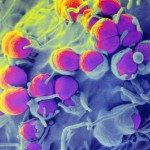Lien vers Pubmed [PMID] – 20540771
BMC Health Serv Res 2010;10:161
It is a qualitative design study that examines points of divergence and convergence in the perspectives on recovery of 36 participants or 12 triads. Each triad comprising a patient, a family member/friend, a care provider and documents the procedural, analytic of triangulating perspectives as a means of understanding the recovery process which is illustrated by four case studies. Variations are considered as they relate to individual characteristics, type of participant (patient, family, member/friend and care provider), and mental illness. This paper which is part of a larger study and is based on a qualitative research design documents the process of recovery of people with mental illness: Developing a Model of Recovery in Mental Health: A middle range theory.

